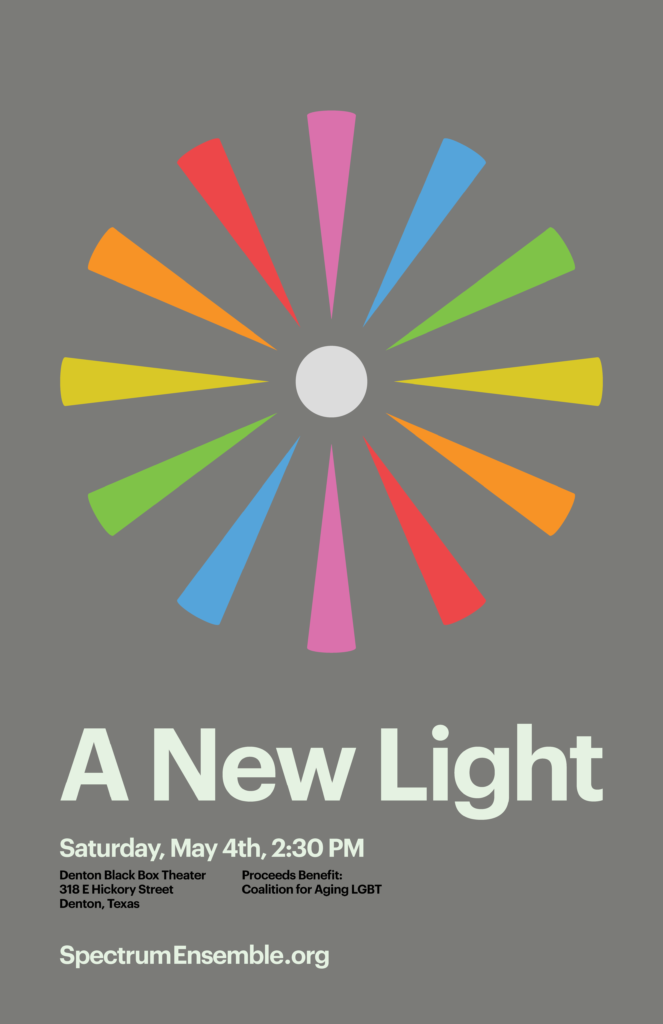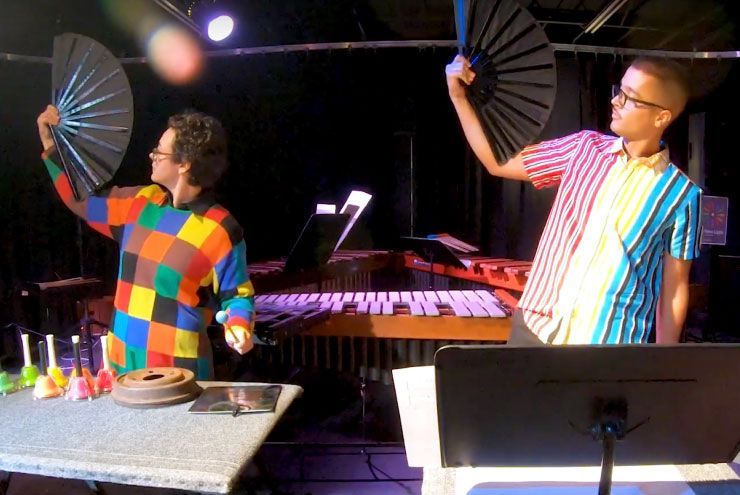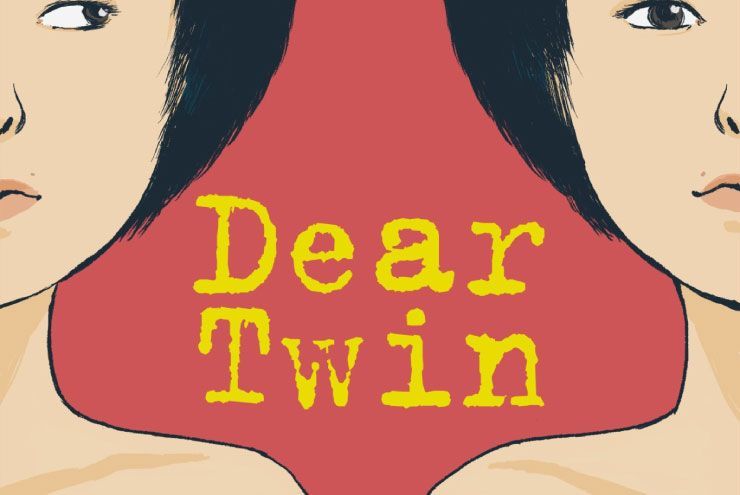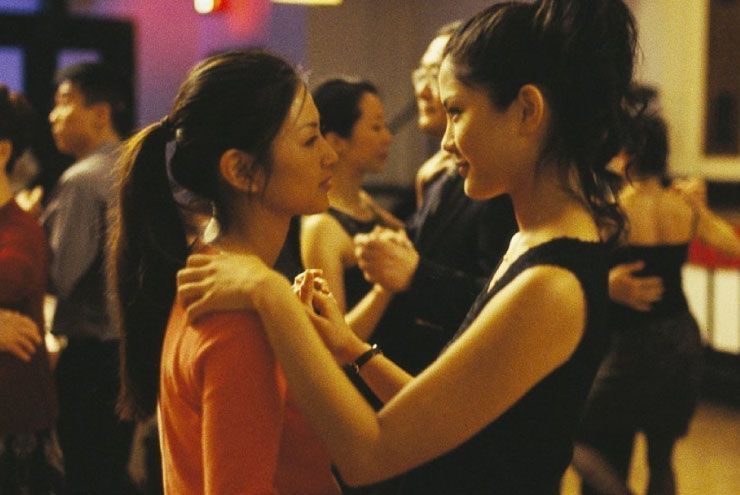By MLe McWilliams
On Saturday May 4, the Denton, Texas–based musical group Spectrum Ensemble made their debut with their specially curated show, A New Light, at Denton’s Black Box Performing Arts Center. “The energy in the room was magnetic,” Jaime Esposito, co-founder of the group, says of the intimate show, which had about 60 people in attendance. “It was exhilarating and the most fun performing I had ever experienced.”

On Saturday May 4, the Denton, Texas–based musical group Spectrum Ensemble made their debut with their specially curated show, A New Light, at Denton’s Black Box Performing Arts Center.
Esposito, along with co-founder Stephen Hall, created Spectrum Ensemble out of the desire to showcase talented musicians within the LGBTQ community, as well as to commission new works that explore and unmask the queer experience. “As a queer musician, it astounds me that many of us in the classical music community are queer, but our queerness is never expressed or visible when educating the public, or even other musicians, about our music,” Esposito says. “By creating Spectrum Ensemble, I am really pushing our visibility in the music world. I mean, it’s hard to believe that people don’t think our identity influences the creation of our music and what we are writing.”
Esposito notes that what differentiates Spectrum Ensemble from other classical music ensembles is the group’s three objectives: We commission and perform great music of high caliber, increase representation of queer artists in the classical music world, and use our music to raise funds that will be donated to meaningful LGBTQ advocacy organizations.
27-year-old Esposito has been a lifelong musician, and has studied percussion since they were in the sixth grade. “I chose percussion because drums were really cool to me,” Esposito explains. “When I was a child, I had little drums that I was really in to, so being a percussionist was perfect. I love the challenge and competition aspect of playing the drums.” When asked their favorite percussion instrument, Esposito named the timpani (also known as the kettle drums) and snare drums, but noted that they can play almost any percussion instrument.
Now, Esposito is a freelance percussionist based in the Dallas/Fort Worth area, as well as the ensemble tech and private lessons teacher at L.D. Bell High School. They also frequently play with the Las Colinas Symphony Orchestra, Texarkana Symphony, Allen Symphony, and Abilene Philharmonic.
With their new show, A New Light, Spectrum Ensemble was intentional in centering the music of queer artists and composers. Of the six works performed that afternoon, two were familiar, while four debuted for the first time. The two recognizable pieces—yet, relatively unknown for their queerness—were “Maria” by Leonard Bernstein from West Side Story, and “Adagio for Strings” by Samuel Barber.
The other four pieces performed, each speaking to the queer experience, were commissioned specifically for the show: “Golden Gate” by Kevin Rosacia, “Cog” by LJ White, “speak over” by Luke Ellard, and “Dorothy Fragments” by Derek Tywoniuk. “Golden Gate” was born as a way for composer Kevin Rosacia to express their internal struggle coming to terms with their sexual orientation, while “Cog” was written during composer LJ White’s first year publicly identifying as male—and as a way of sifting through all the “noise” of how he fits into the world. Luke Ellard’s “speak over” is a commentary on marginalized individuals who speak over, instead of lifting up and amplifying community voices. Finally, “Dorothy Fragments” by Derek Tywoniuk focuses on what Tywoniuk calls queer culture’s “fragmentary nature,” including inside jokes, catch phrases, and subcultures. “Of all the pieces we performed, this one was my favorite!” Esposito says. “I cried a little bit when I read about the creation of this work. This piece is specifically about queer culture and what we [as queer people] understand and appreciate. It is powerful and exciting, and exactly what we at Spectrum Ensemble are trying to push and inspire queer composites to write—queer content.”
Proceeds from the show benefitted the Coalition for Aging LGBT, a non-profit that aims to improve the quality of life of older LGBT adults in North Texas through health, housing, advocacy, financial security, and social services. Esposito notes that many of the board members from the Coalition attended the performance, and the show provided a way for members to get out and meet new people.
Following their hit first show, Spectrum Ensemble already has new performances in the works. The New Media Art and Sound Summit has asked the group to collaborate on a festival in December of this year, and will also be a part of the summit lineup for summer 2020. Esposito and Hill have also submitted a proposal to the Percussive Arts Society to commission a new piece from musician Alex Temple. “We are always looking to work with queer artists and composers,” Esposito says. “If you want to work with us, please reach out!”
Keep up with Spectrum Ensemble on Facebook and Instagram. Donations to the group can be made through their fundraising page on Fractured Atlas.







